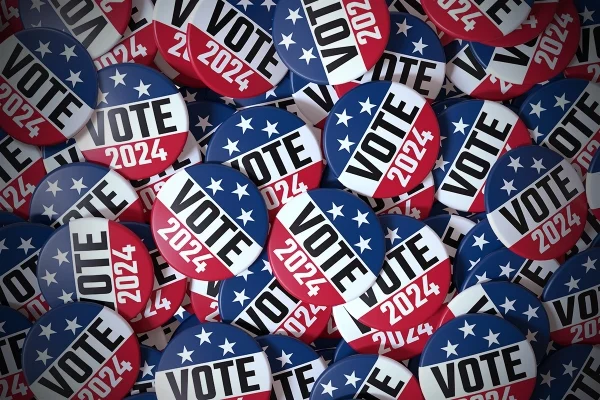Even though you might not be eligible to vote in the 2024 Presidential election, it’s important to be well informed and concerned about a Presidential election.
There are 2 main candidates: Kamala Harris representing the Democratic Party, and Donald Trump representing the Republican Party.
According to BBC, the Democratic Party is the liberal leaning group pushing for civil rights and taking action on climate change.
The Republican Party is the conservative political party that stands for lower taxes, a smaller central government, loser gun constrictions, and strict immigration and border policies.
To become the next president, the candidates must earn 270 electoral college votes. Each state has a proportional representation of electoral votes based on population. There are a total of 538 electoral votes available.
48 states have a rule where the winner takes it all, meaning whichever candidate wins the popular vote is given all the state’s electoral votes.
Candidates can win the votes nationally but can be defeated by the electoral college. This happened in 2016 with Hillary Clinton when she won the popular vote, but did not earn enough electoral college votes.
Through voting for a new president, you are also voting for new members of Congress. Congress, made of the House of Representatives and the Senate, is where laws are proposed and enacted. This means your vote can determine new laws and policies that can be endorsed.
The House of Representatives has 435 seats up for grabs during the election, and the Senate has 34 seats. Republicans currently have a majority in the House of Representatives, and Democrats have hold of the Senate. The upcoming election will determine the majority and minority leaders of the two houses.
The election will take place on Tuesday, November 5th, 2024. If you are eligible to vote in the upcoming election, make sure to register before Oregon’s registration deadline: Tuesday, October 15 2024.
Mr. Hahn, AP US Government and Politics and AP Comparative Government teacher, had insight for students at Jesuit with the upcoming election.
“I’d say eligible or not, all students should inform themselves [on the issues and policies, especially those that are most important to them],” Hahn said.
“[I know] a lot of seniors are eligible to vote and I’m hoping they exercise that privilege in our society,” Hahn said.










